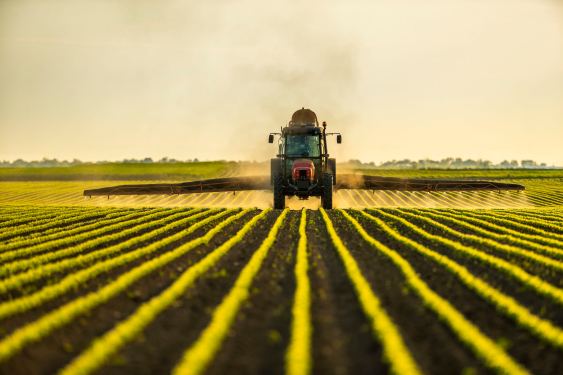
Micropep Taps Tiny Proteins to Make Pesticides Safer
The Quest for Sustainable Agriculture: Micropep’s Innovative Approach
A New Class of Pesticides: Harnessing the Power of Micropeptides
Farmers have long been searching for a solution to the age-old problem of pests and pathogens in agriculture. While chemical pesticides have been the norm, their toxic effects on the environment and human health have led to a growing demand for more sustainable alternatives. Enter Thomas Laurent’s company, Micropep, which is pioneering a novel approach using naturally occurring compounds called micropeptides.
The Science Behind Micropeptides
Micropeptides are small proteins, consisting of fewer than 100 amino acids, that play crucial roles in various biological processes. For years, researchers overlooked the genes coding for these proteins, assuming they were too small to have any significant impact. However, recent studies have revealed that micropeptides are vital for organ development, cell communication, and even acting as switches within cells, controlling which functions to activate or suppress.
Micropep’s Innovative Approach
Innovative companies like Micropep are exploring the potential of micropeptides as a new class of pesticides. Their first product is designed to target specific fungi that attack soybean plants. By spraying the micropeptide on plant leaves, it will wait for fungal spores to land and begin growing. Once detected, the micropeptide will target the fungus’s cell membrane, causing it to self-destruct.
The Potential Impact
If Micropep’s products succeed in market adoption, the potential impact could be substantial. Agriculture is responsible for approximately 25% of global greenhouse gas emissions, with pests consuming around 20-30% of major crops. As the world grapples with climate change, the demand for sustainable agriculture solutions has never been greater.
Challenges Ahead
While Micropep’s approach holds promise, several challenges must be addressed before their products can reach farmers’ fields. One significant hurdle is the stability of micropeptides in the wild. When exposed to soil, enzymes produced by microbes break them down quickly, reducing their effectiveness. To overcome this issue, Micropep has developed strategies to optimize their products for longer persistence.
Strategies for Increased Persistence
Micropep’s approach to addressing the instability of micropeptides involves several steps:
- Optimizing product formulation: By adjusting the chemical structure and concentration of the micropeptide, Micropep aims to increase its stability in the environment.
- Delivery systems: The company is exploring novel delivery methods, such as nanoparticles or liposomes, to protect the micropeptide from degradation.
- Biodegradable packaging: To reduce environmental impact, Micropep is developing biodegradable packaging materials for their products.
The Future of Sustainable Agriculture
Micropep’s innovative approach using micropeptides represents a significant step towards sustainable agriculture. As concerns about environmental and human health grow, the demand for eco-friendly solutions in agriculture will only increase. Companies like Micropep are pioneering a new era in agricultural technology, one that balances productivity with sustainability.
Conclusion
The quest for sustainable agriculture is an ongoing challenge that requires innovative solutions. Micropep’s novel approach using micropeptides offers a promising alternative to traditional chemical pesticides. By addressing the stability and persistence of these compounds, Micropep is paving the way for a more environmentally friendly future in agriculture.


